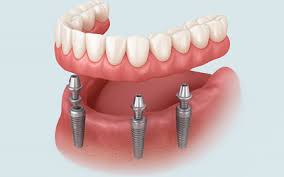Exiting a dental practice isn’t merely a financial move—it’s an emotional journey. For many dental professionals, their clinic is a reflection of years of hard work, trust built with patients, and personal dedication. So, when the time comes to move on—be it due to retirement, career shift, or new business aspirations—it’s vital to approach the process thoughtfully.
Evaluating the True Worth of a Dental Practice
Recognizing Emotional Influence
Many dentists unintentionally inflate their practice’s value due to years of personal investment. Brokers offer an unbiased evaluation based on concrete data like:
- Historical revenue trends
- Patient retention statistics
- Operational costs
- Lease agreements and equipment condition
- Staff competencies
Approaches to Calculating Value
Brokers use two primary valuation methods:
- Asset-focused method: Totals the value of physical assets such as dental chairs, X-ray machines, and office furnishings.
- Income-based method: Projects future income to determine a realistic present-day value.
A combined approach is often the most accurate.
Preparing Your Practice for a Sale
Financial Records Must Be Spotless
Detailed and transparent records attract serious buyers. Ensure your documents include:
- Annual profit and loss statements (at least three years)
- Filed tax returns
- Employee contracts and payment logs
- Equipment and lease agreements
Increase Operational Efficiency
Prospective buyers look for well-managed practices. Boost your clinic’s appeal by:
- Updating patient communication systems
- Investing in modern dental technology
- Reducing appointment cancellations through reminders
Support Your Staff
A team that is loyal and motivated is a significant asset when presenting your clinic to potential Dental Practice Sales Brokers. Keeping them informed and secure during the transition can ease the buyer’s concerns and enhance the overall appeal of your practice.”
Marketing the Sale with Discretion
Protecting Your Reputation
Sales brokers discreetly promote your practice. Listings are anonymous until the buyer signs a non-disclosure agreement (NDA).
Identifying Ideal Buyers
A suitable buyer isn’t just someone with capital—they should align with the practice culture. Brokers filter candidates based on:
- Clinical expertise
- Financial readiness
- Compatibility with patient-centered values
This approach maintains the goodwill that the practice has fostered.
Emotional and Psychological Preparation
Letting Go of the Familiar
The sale may feel like losing a part of your identity. Brokers offer support by maintaining focus on the professional and logistical elements.
Planning Life After the Sale
Defining your next move—whether it’s retirement, mentoring, or another venture—can ease the transition.
Handing Over Relationships
Trust is transferable. A proper transition plan might include:
- Patient notification letters
- Joint appointments with the incoming dentist
- Public farewell messages or announcements
Legal, Tax, and Financial Considerations
Important Contractual Elements
Brokers partner with attorneys to cover legal essentials:
- Restrictive covenants (e.g., non-compete clauses)
- Employment terms if you assist during the handover
- Performance clauses based on post-sale outcomes
The Final Steps
Closing involves several tasks:
- Due diligence from the buyer
- Finalizing legal documents
- Transitioning business licenses, insurance, and vendor accounts
With a broker, these steps remain structured and error-free.
Mistakes to Steer Clear Of
Inflating the Sale Price
Overpricing can deter otherwise serious buyers. A broker provides market-justified figures.
Reducing Standards During the Process
Maintain your usual pace and professionalism. A dip in performance can raise red flags.
Hiding Weaknesses
Disclosing issues like staff turnover or equipment needing replacement builds trust and prevents post-sale complications.
Why Timing Plays a Critical Role
External Market Forces
Economic cycles, industry trends, and legislation can all influence buyer interest. Brokers keep a close eye on these dynamics.
Personal Timing
There’s no perfect moment, but being emotionally ready and having a profitable practice on the books provides the best window for selling.
Conclusion: Honoring Your Work While Moving Forward
It’s the close of one chapter and the beginning of another. With the support of a skilled dental practice sales broker, you ensure the process is thoughtful, profitable, and respectful of everything you’ve built.
Your patients, staff, and legacy deserve a smooth handoff—and so do you.
If you’re even considering selling in the next few years, don’t wait. Begin conversations now and pave the way for a successful transition.
Frequently Asked Questions
- What commission do dental sales brokers charge?
Brokers typically earn between 6% to 10% of the final sale value, payable at closing. It varies based on the broker and deal size. - How long is the average selling process?
Most practices are sold within 6 to 12 months, though this depends on location, business performance, and buyer availability. - Can I sell if I lease me dental office?
Yes, you can. However they lease must be transferred and renegotiated with the landlord. Brokers can assist with lease coordination. - Should I sell to a dental corporation or an individual?
It depends on your priorities. Corporations may offer faster closings and full cash deals, while individual dentists often ensure continuity in patient care.












Leave a Reply